By Dr David Deam and Dr Simon Nazaretian
As one of Australia’s largest pathology providers, Clinical Labs was amongst the first to witness pathology numbers drop by a staggering 40% in April 2020. Although many prominent figures in Australian healthcare, including the Hon. Greg Hunt MP, Minister for Health, urged Australians not to delay medical appointments, cancer screenings and pathology tests, the Australian public avoided these healthcare services, wary of exposure to the new virus.
Due to the critical role pathology plays in the management of chronic health conditions and the diagnosis of cancers, Clinical Labs became increasingly concerned about the corresponding drop in the vital diagnoses of malignancies and chronic conditions, including diabetes.
At the end of 2020, an analysis was undertaken to investigate the true impact the COVID-19 pandemic had on these critical disease diagnoses. Data from our histology and biochemistry laboratories spanning five years (Jan – Oct 2016-2020) was extracted and used to calculate the percentage of abnormal results reported during the time period.
Year-on-year test numbers allow Clinical Labs to calculate an estimate of expected referrals for any given year. These projections are used in preparing the laboratories for the coming year but are equally useful in determining the impact of the COVID pandemic on pathology referrals.
By combining Clinical Labs data and data from Medicare Australia we were able to calculate the impact of the downturn in testing for each state.
In the article below we will take you through the key findings and implications of this data and share with you the true impact Australia’s 2020 COVID-19 lockdowns had on critical health diagnoses.
COVID-19 PANDEMIC IMPACT ON CANCER DIAGNOSES
It is well known pathology referrals, including histopathology referrals, fell dramatically in 2020. However, the impact on community morbidity and mortality may not have been fully appreciated. Clinical Labs has undertaken in-depth analysis of referral data to illustrate the significant impact the pandemic has had on malignancy diagnoses.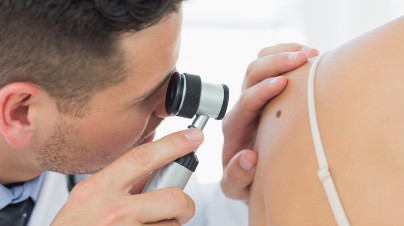
The drop in histopathology tests and cancer diagnoses in 2020
The impact of the COVID-19 pandemic and lengthy lockdown periods in Victoria throughout 2020 resulted in a significant reduction in pathology episodes and reduction in histopathology tests across the state. Our Clinical Labs laboratories received 17.8% fewer histopathology biopsies and tests than projected for the January to October 2020 period, and based on state Medicare data, nearly 100,000 fewer histopathology samples were received by Victorian laboratories than projected over this period.
This is also reflected in the reduced number of malignancies diagnosed. Clinical Labs laboratory data for the January to October 2020 period shows a 17.3% reduction in the diagnosis of more common malignancies (melanoma, breast cancer, prostate and bowel cancer and lung cancer) than estimated, based on our positive diagnosis rates for these cancers.
The findings were similar in New South Wales, where our laboratories received 16.3% fewer histopathology samples than projected and according to Medicare data, all NSW laboratories received over 100,000 fewer samples than projected. The reduction in histopathology samples also aligned with a 16.3% reduction in the diagnosis of malignancies by our NSW anatomical pathologists.
Western Australia and South Australia were less affected by strict lockdown periods in 2020 and this is reflected in the data in the following table for these states. However, the findings still show a downturn in samples and corresponding diagnoses.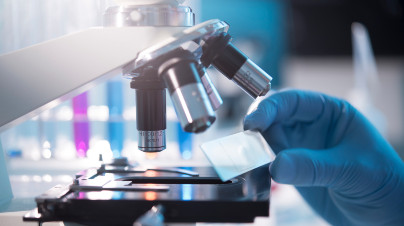
At a glance - Downturn in histopathology samples and malignancy diagnoses by state in 2020
| State |
Downturn in histopathology samples by state (Medicare data) |
Percentage downturn in histopathology samples Clinical Labs |
Percentage downturn in malignancy diagnoses Clinical Labs |
| VIC | 98,931 | 17.8% | 17.3% |
| NSW | 105,831 | 16.3% | 16.3% |
| WA | 18,343 | 12.50% | 12.50% |
| SA | 7,784 | 9.50% | 9.50% |
Table 1 – Estimated histopathology downturns by state Jan-Oct 2020
What does this reduction in diagnoses mean for the health of patients within our community?
From Jan to Oct 2020, it is estimated:
- Over 1000 Victorians were not diagnosed with melanoma or melanoma in situ.
- Nearly 650 breast cancers and 650 bowel/prostate cancers were not diagnosed in Victoria.
- Similarly, almost 140 Victorians were not diagnosed with lung cancer.
As of October 2020, these patients were undiagnosed and not receiving the early treatment so vital to improving prognosis of malignancy.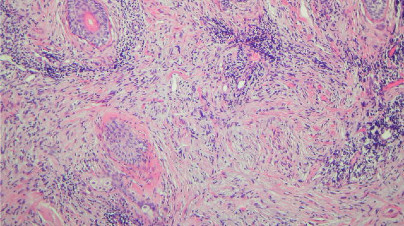
Estimated undiagnosed malignancies (Victoria)
| Cancer Type | Number of Undiagnosed Victorians |
| Melanoma | 853 |
| Melanoma in situ | 150 |
| Breast Cancer | 649 |
| Prostate Cancer | 283 |
| Bowel Cancer | 358 |
| Lung Cancer | 138 |
Table 2 – Estimated number of Victorians with undiagnosed malignancies (Jan-Oct 2020). Based on statewide Medicare data and Clinical Labs cancer diagnosis rates.
Our data analysis also estimated there to be hundreds of people in New South Wales with undiagnosed malignancies at Oct 2020, as detailed in the following table. While fewer malignancies were undiagnosed in Western Australia and South Australia, the numbers remain significant even for these less-impacted areas.
Undiagnosed malignancies (New South Wales, Western Australia and South Australia)
| Cancer Type | NSW | WA | SA |
| Melanoma | 392 | 46 | 93 |
| Melanoma in situ | 455 | 61 | 5 |
| Breast Cancer | 217 | 109 | 6 |
| Prostate Cancer | 47 | 18 | 10 |
| Bowel Cancer | 305 | 126 | 5 |
| Lung Cancer | 45 | 65 | 4 |
Table 3 – Estimated number of people in New South Wales, Western Australia and South Australia with undiagnosed malignancies (Jan-Oct 2020). Based on statewide Medicare data and Clinical Labs cancer diagnosis rates.
Delays in the diagnosis and treatment of these cancers may result in their progression to a later stage, associated with increased morbidity and mortality rates. Additionally, the influx of new patients requiring more aggressive surgeries and treatments may place added strain on our healthcare system.
It is vital that we all vigorously seek out the thousands of people who were not screened in 2020 to facilitate the earliest diagnosis of any malignancies.
COVID-19 PANDEMIC IMPACT ON DIABETES AND CHOLESTEROL TESTING, DIAGNOSIS AND MANAGEMENT
With the downturn in pathology referrals in 2020, Clinical Labs also saw a decline in biochemistry referrals, resulting in thousands of tests not being carried out.
The downturn in diabetes and cholesterol tests in 2020
The reduced number of samples received at our laboratories was partly due to people being locked down or reluctant to visit their doctors. Others had request slips for their routine tests, including diabetes and cholesterol, but were reluctant to attend collection centres during outbreaks.
The below graph shows the number of diabetes and cholesterol tests received in Jan to Oct 2020, as a percentage of our projected numbers.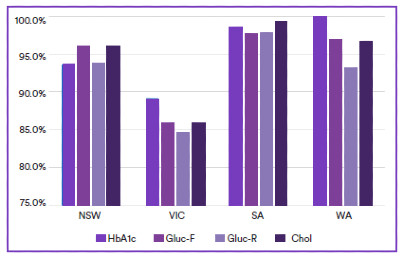
Graph 1 – The actual number of diabetes and cholesterol tests that Clinical Labs performed in 2020 as a percentage of projected numbers. (Gluc-F = fasting glucose, Gluc-R=random glucose, Chol= cholesterol)
To put these downturns in perspective, a 1% reduction in HbA1c testing represents over 17,000 tests not be completed across Australia.
As expected, these downturns mirror the lockdowns and COVID-19 case numbers experienced in each state, with Victoria being the most affected.
The corresponding impact of the downturn in testing numbers on test results
Due to the volume of tests for diabetes and cholesterol performed each year, the number of people who may have gone undiagnosed or unmanaged for these conditions is estimated to have run into the thousands, as shown in the table below.
| State | HbA1c | Glucose (fasting and random) |
Cholesterol |
| VIC | 18,134 | 8,017 | 27,616 |
| NSW | 3,398 | 1,309 | 2,717 |
| WA | 60 | 457 | 2,032 |
| SA | 661 | 2,138 | 297 |
| Total | 22,253 | 11,921 | 32,662 |
Table 4 – Estimated number of unperformed tests returning an abnormal result. (Clinical Labs data Jan–Oct 2016-2020)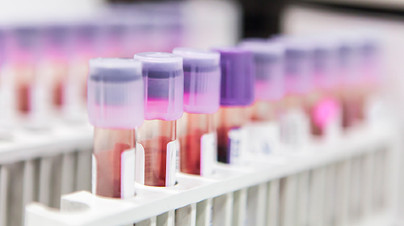
What does this reduction in testing mean for the health of patients within our community?
These findings indicate there were many thousands of people in 2020 who missed having tests for the diagnosis or monitoring of common morbidities.
This downturn in testing may result in poorer short- or long-term outcomes for patients, delaying or missing diagnosis and treatment of chronic conditions.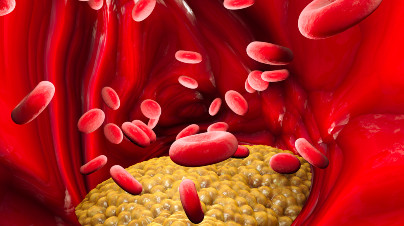
SUMMARY
- Based on the extraction and analysis of data from our laboratories and Medicare data, it is estimated thousands of Australians should now be undergoing treatment for malignancies that may remain undiagnosed.
- In addition, thousands of Australians missed important diagnostic and monitoring tests for diabetes and cholesterol abnormalities.
- At Clinical Labs, we have seen firsthand the impact the 2020 COVID-19 pandemic had on critical health diagnoses; we want to help protect the health of Australians and do everything possible to ensure patients who missed vital testing are assessed at the earliest opportunity.
RECOMMENDATIONS
- It is vital to seek out and follow up on patients who missed cancer screening tests in 2020, including patients on
your practice skin check recall lists, who may have missed six-monthly or annual skin checks in 2020. - Now is a good time to send communications to patients on your diabetes recall lists, to help them get the management of their condition back on track.
- In the event there are more lockdowns during this current or future pandemics, it is important to continue reinforcing to patients the importance of attending their cancer screenings and routine blood tests, that they can attend these essential healthcare services, and should continue to do so.
About the authors:

Dr David Deam
MBBS MAACB FRCPA
Lab: Clayton
Speciality: Chemical Pathology
Areas Of Interest: Endocrine Function Testing, Protein Abnormalities, Laboratory Automation
Phone: (03) 9538 6777
Email: david.deam@clinicallabs.com.au
Dr Deam graduated with Honours in Medicine from Monash University in 1978 and obtained his FRCPA in 1985, following postgraduate training in Biochemistry at the Royal Melbourne Hospital. After several posts in Chemical Pathology at the Royal Melbourne Hospital and the Royal Women’s Hospital, he was appointed Head of Chemical Pathology at the Royal Melbourne in 1996. He joined Gribbles Pathology (now Australian Clinical Labs) in 1998. Dr Deam has played an active role in teaching scientific, nursing and medical staff at both undergraduate and postgraduate levels and has been an examiner for the Australasian Association of Clinical Biochemists as well as the Royal College of Pathologists of Australasia. Dr Deam’s research interests and publications include work on thyroid function testing, various aspects of diagnostic protein measurement and the rational use of biochemical tests.

Dr Simon Nazaretian
MBBS BMedSc (Hons) FRCPA Dip Man
Lab: Clayton
Speciality: Anatomical Pathology
Areas Of Interest: Gynaecological Pathology, Breast Pathology, Urology, Infertility and Cytology
Phone: (03) 9538 6777
Email: simon.nazaretian@clinicallabs.com.au
Simon graduated from Monash University in 1997 and worked as a hospital medical officer for Southern Health until 2001. Simon has been a senior lecturer with Monash University Faculty of Medicine, Nursing and Health Sciences since 2000 and Associate Investigator with Monash University Centre for Synchrotron Science since 2009. He has worked as an anatomical pathologist at The Royal Women’s Hospital and Southern Health from 2008 to 2013. Simon joined Australian Clinical Labs (then Healthscope Pathology) in 2010 and further developed his interests in Gynaecological and Breast pathology, Infertility, Urology and Cytology. Simon completed his Diploma of Management in 2011. From 2011 to 2013 Simon was Coordinator of the Royal College of Pathologists of Australasia (RCPA) Victorian Anatomical Training Program and between 2013 and 2018 was RCPA Victorian State Councillor and in 2012 he received the RCPA Outstanding Teacher Award. Simon was a member of the Clinical Advisory Committee for the Commonwealth Department of Health’s Digital Health Agency. In 2018 he became Clinical Director of Anatomical Pathology for Victoria and South Australia for Clinical Labs, focussing on business development and marketing. He is also a Medical Testing Assessor for NATA and is a member of the Anatomical Pathology Advisory Committee and examiner for the Royal College of Pathologists of Australasia.



